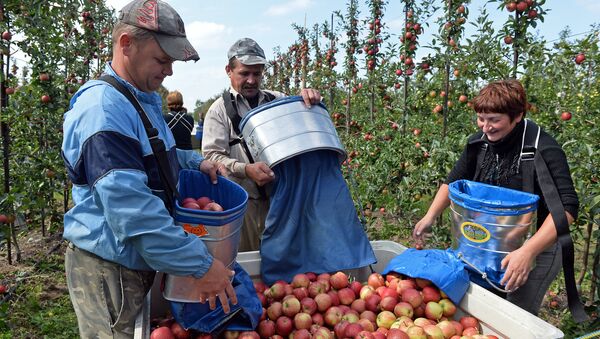Earlier, Newsweek magazine's Polish edition quoted Polish Foreign Minister Witold Waszczykowski as saying that Ukrainian immigrants allegedly withdraw around five billion euros from Poland every year.
"I think the figure was deliberately exaggerated, in line with certain propaganda reasons, to convince someone that Poland has accepted up to a million Ukrainian immigrants. But this is also untrue because the figure actually stands at about half a million, which is also a considerable amount," Kalita said.
According to him, Ukraine's large-scale labor migration in 2015, when "the country's economy started to crumble in a process what was followed by the collapse of Ukrainian policy."
"Right now, there is the crisis of statehood in Ukraine, which is why many of its citizens are forced to look for job in those countries, including Poland, where they can simply make a living," Kalita added.
When asked if the immigration of Ukrainians had led to competition with Polish citizens in the workforce, Kalita said that no rivalry existed, because "there are different types of work, some of them are very difficult and sometimes unpleasant, which are done by immigrants."
"This hard work includes cutting chicken carcasses, growing champignon mushrooms in greenhouses, working on construction sites and picking berries in the fields," he said.
In March 2017, Poland's Ministry of Internal Affairs annulled the former government's document on migration policy, saying it failed to account for current realities, including the issue of Ukrainian economic migration.
Nationalists protest against Ukrainian migrants https://t.co/fnSBWoewb8 pic.twitter.com/6Ox4e3KKma
— Ruptly (@Ruptly) 18 марта 2017 г.
Deputy Internal Affairs Minister Jakub Skiba expanded further, saying that the old document made it impossible for Warsaw to adequately respond to the "immigration crisis and economic migration from Ukraine."
The state would have to separate refugees and economic migrants, and change its policy toward economic migrants from Poland's eastern neighbor, he said.
Despite the hundreds of thousands of arrivals in Eastern Europe's most populous country, Warsaw and Brussels have had a very public falling out over the issue of Middle Eastern and North African refugees.
Poland and many of its Eastern European neighbors are simply refusing to accept EU-imposed quotas, aimed at distributing the migrants across Europe in a more even manner.
Never miss a story again — sign up to our Telegram channel and we'll keep you up to speed!




